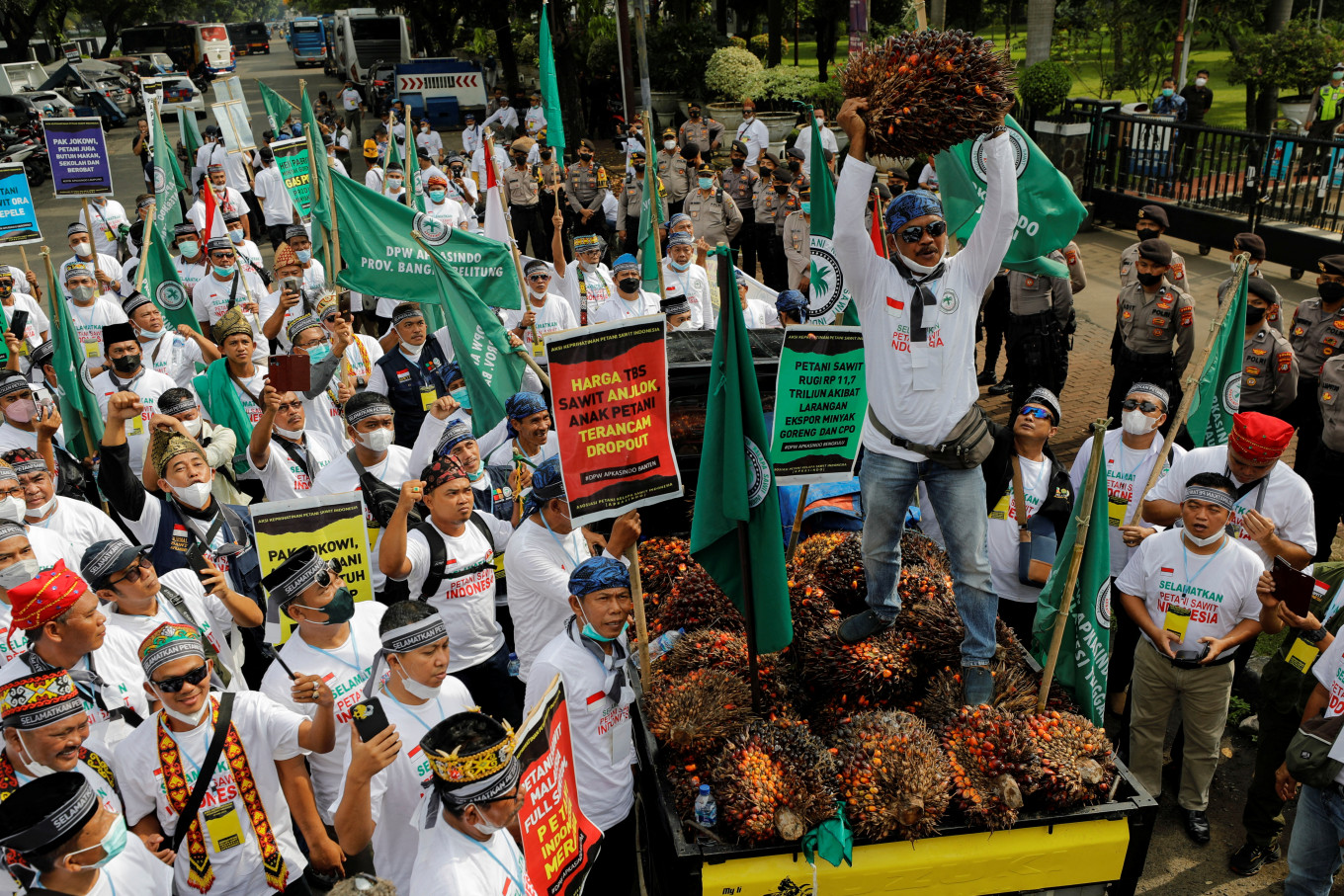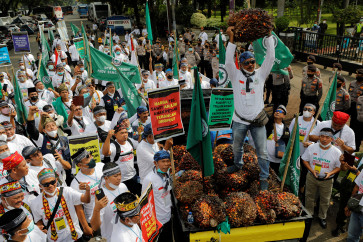Popular Reads
Top Results
Can't find what you're looking for?
View all search resultsPopular Reads
Top Results
Can't find what you're looking for?
View all search resultsErratic policies exacerbate uncertainties in palm oil industry
The intention to audit all palm oil companies has added to the confusion surrounding the way President Joko “Jokowi” Widodo has been addressing the skyrocketing price of the commodity.
Change text size
Gift Premium Articles
to Anyone
T
he recent pronouncement by the Coordinating Maritime Affairs and Investment Minister Luhut Pandjaitan that all palm oil companies in the country are to be audited confirms assumptions that the government has no complete database on the upstream and downstream palm oil industry.
The move came on the back of a series of marketing-intervention measures between January and this month to stabilize the retail price of cooking oil after the prices of palm oil skyrocketed due to the massive disruption in the global supply of edible oils, a combined result of poor harvests and the Russian invasion of Ukraine.
All the market-intervention policies, such as the fixing of retail-price ceiling, the imposition of domestic market obligation (DMO) and domestic price obligation (DPO) between January and March and the total export ban in late April, have failed to stabilize the cooking oil price at the fixed-price ceiling of Rp 14,000 (less than US$1) per liter.
That seemed bizarre because Indonesia is the world’s largest palm oil producer, supplying one third of global edible oils. Last year the industry contributed more than $35 billion in export earnings.
The latest news is that the Indonesian Palm Oil Association (Gapki) reports show Indonesia’s production totaled 47 million tons last year, of which only about 18 million tons were used domestically for food, such as cooking oil, and industrial products, such as oleochemicals and biodiesel. The cooking oil industry’s capacity was estimated at 16.5 million tons while the domestic need for household and industrial consumption was only about 7 million tons.
The intention to audit all palm oil companies has added to the confusion surrounding the way President Joko “Jokowi” Widodo has been addressing the skyrocketing price of the commodity.
The order for the overall audit of the industry validated the public’s suspicion that all relevant ministries and authorities have not properly performed their duties in sync with the President’s instruction. The ministries seemed to work in silence, unwilling to reveal the data that it was their duty to collect regarding various aspects of the palm oil industry.



















